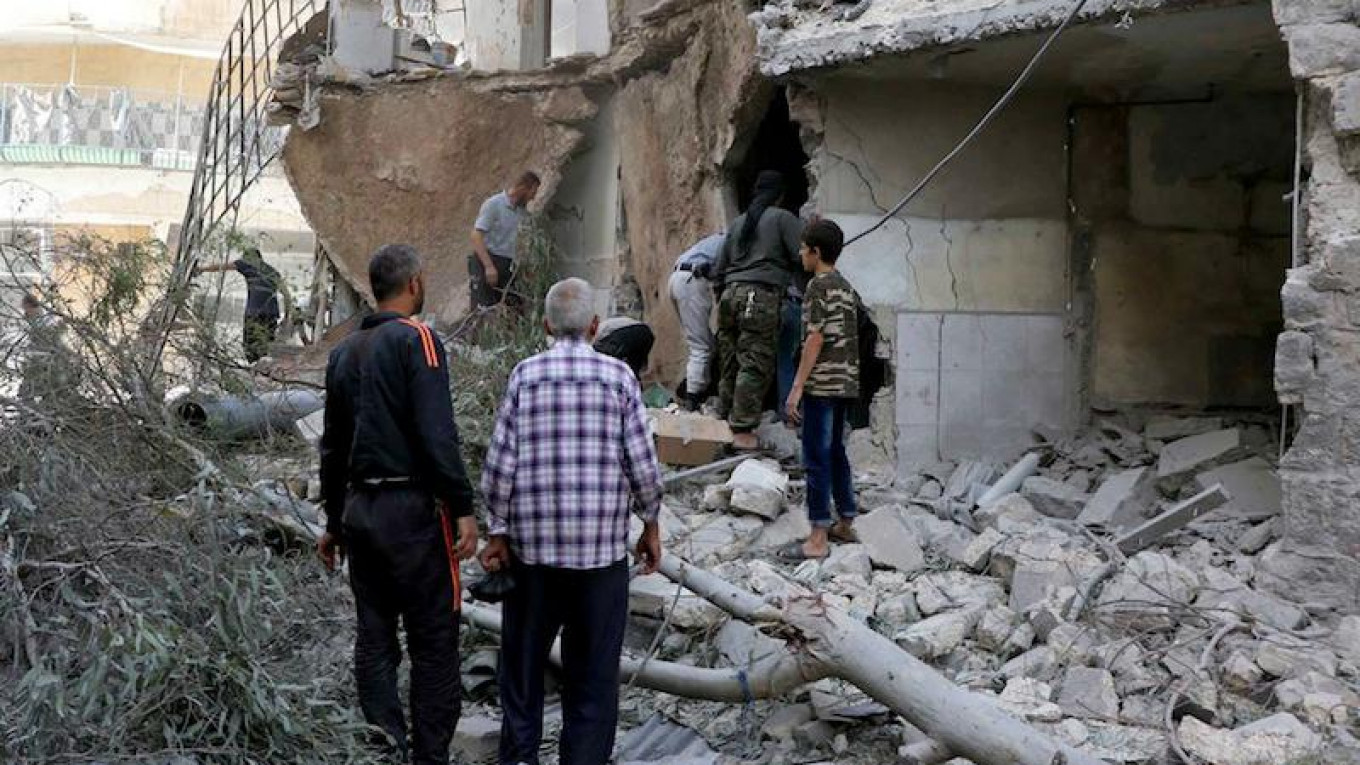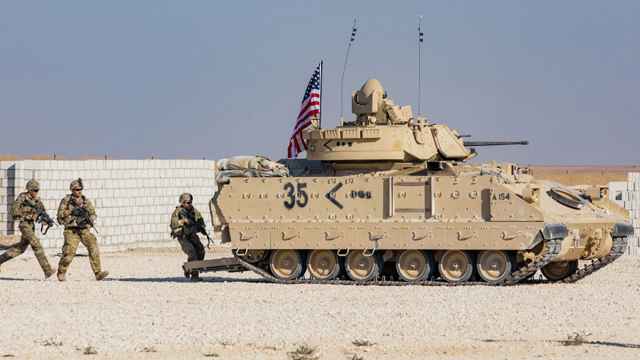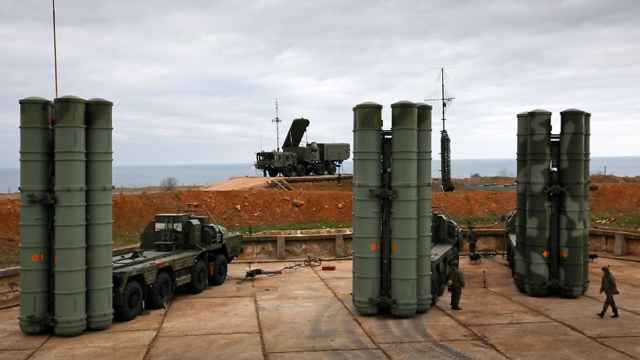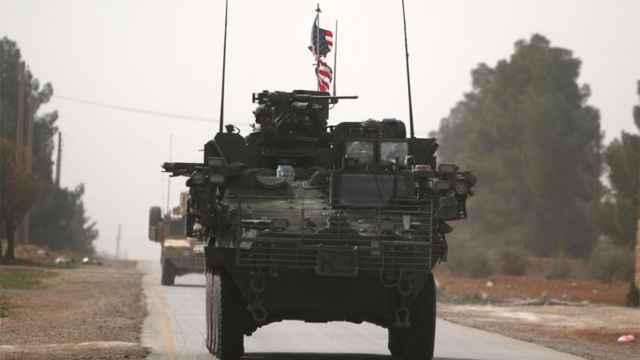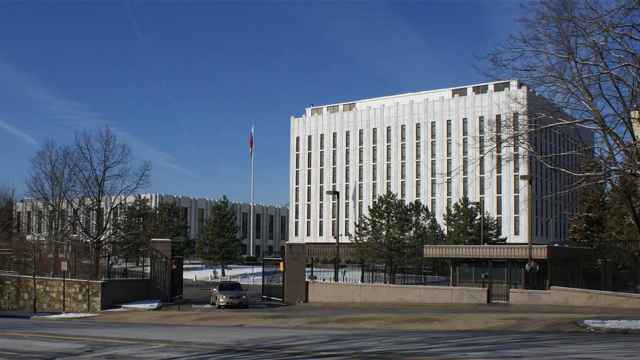It is hard to escape the impression that Russia has decided this week to bomb its way out of its most important diplomatic achievement — the Kerry-Lavrov agreement in Geneva on Cessation of Hostilities (CoH) and U.S.-Russia military cooperation in Syria.
The Geneva agreement, which in plain terms amounted to a wholesale
capitulation of the U.S. policy in Syria, gave Moscow essentially what it sought
when it launched its military intervention a year ago — a U.S. recognition of
Russia as an essential military ally in the war on the Islamic State and al-Qaida. A seven
day cease-fire built into the agreement was meant to instill trust between the U.S.
and Russian militaries and clear the way for establishing a joint targeting
center to conduct air strikes and relaunch talks on ending Syria’s civil war.
Given how advantageous this agreement was for Russia, one would
think Moscow would do its best to uphold its end of the bargain which was to
restrain the Syrian regime from bombing the opposition-controlled areas and
open up unrestricted humanitarian access to all besieged areas across Syria.
And that it would keep its own generals on board to support the deal.
But it did not turn out this way.
From the onset of the CoH on Sept. 12, the Russian commanders in Syria and at the Defense Ministry took an unusually skeptical attitude toward the deal and almost immediately started building a public case that the CoH was failing due to violations by the Syrian rebels and the U.S. which has failed to separate the moderate opposition fighters from the terrorist groups. The Foreign Ministry and the Kremlin have sounded more upbeat about the cease-fire.
There is plenty of blame to go around for the CoH violations. Both parties utilized the cessation in order to consolidate recent gains and to re-deploy military assets to other critical frontlines in likely preparation for upcoming offensives. But the Assad regime bears the brunt of the responsibility for the CoH’s ultimate collapse as it continued indiscriminate bombings, advanced on the ground and blocked all UN aid deliveries.
The regime never liked the concept of U.S.-Russia deal behind its back. The Geneva agreement was to open the way for peace talks with Fatah al-Haleb, a U.S. and Turkey supported coalition of several dozen rebel groups fighting the regime forces around Aleppo, a prospect the regime did not relish. Assad had all the incentives to torpedo the CoH and it appears that the Russian military, instead of restraining the Syrian Army, were overly sympathetic to its intransigence.
When the U.S.-led Coalition aircraft bombed the Syrian Army
positions at Deir-iz-Zor on Sept. 17, the Russian reaction was to
overdramatize and distort a typical friendly-fire incident. There were no
grounds to assert, as Moscow rushed to do, that the Coalition planes
deliberately targeted the Syrian Army positions to facilitate the advance of
the Islamic State. In fact, the incident could be the first case of Coalition aircraft
trying to provide close air support to Assad’s troops against the Islamic State. There was a
U.S. attempt to coordinate the strike with the Russian military which apparently
were not aware of the Syrian Army position in the targeted area. In any event,
the initial Russian statements blaming Washington for “supporting the Islamic State” were
outrageous. This is not how one builds trust in preparation for joint military
operations.
The air strike on the UN humanitarian convoy near Aleppo, which Washington blamed on Russian and Syrian Air Force, could well be the death knell on the U.S.-Russia agreement. At a minimum, it highlights the risks for the U.S. in joint targeting decisions with Russia. It is hard to imagine why Moscow would deliberately target a humanitarian convoy, while a strike in error is unbelievable. The Defense Ministry's version of events, that has been changing every 12 hours or so, strains credulity, creating what U.S.Secretary of State John Kerry described at the UN as a “parallel universe.” Assad clearly had a motive to strike the convoy as it is consistent with his policy of making civilian life in rebel-held areas unsustainable.
It looks as if Moscow has little capacity to deliver Assad’s compliance and may even be inclined to agree with his resolve to fight this war to the end. Russia may be trying to exert pressure on the U.S., by escalating levels of violence, to change some terms of the Geneva agreement, perhaps securing U.S. consent to designating as “terrorist” the largest Islamic rebel groups — Ahrar al-Sham and Jaish al-Islam — the principal threats to Assad’s power. Yet, in the process it risks shattering a fragile consensus in Washington that pursuing military cooperation with Russia in order to stop the killing in Syria is any longer worth the effort. It is now Moscow’s call.
A Message from The Moscow Times:
Dear readers,
We are facing unprecedented challenges. Russia's Prosecutor General's Office has designated The Moscow Times as an "undesirable" organization, criminalizing our work and putting our staff at risk of prosecution. This follows our earlier unjust labeling as a "foreign agent."
These actions are direct attempts to silence independent journalism in Russia. The authorities claim our work "discredits the decisions of the Russian leadership." We see things differently: we strive to provide accurate, unbiased reporting on Russia.
We, the journalists of The Moscow Times, refuse to be silenced. But to continue our work, we need your help.
Your support, no matter how small, makes a world of difference. If you can, please support us monthly starting from just $2. It's quick to set up, and every contribution makes a significant impact.
By supporting The Moscow Times, you're defending open, independent journalism in the face of repression. Thank you for standing with us.
Remind me later.



